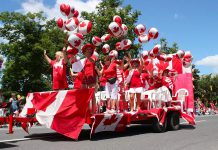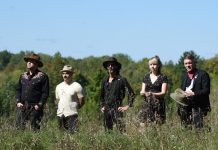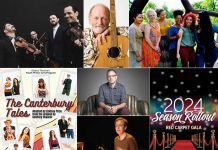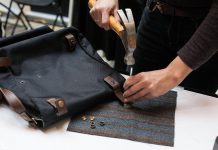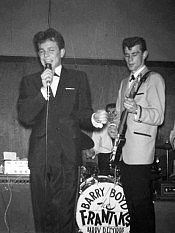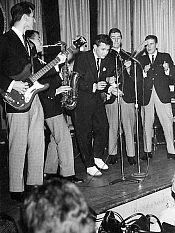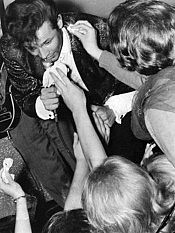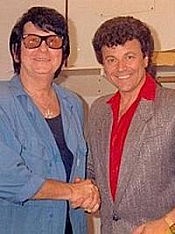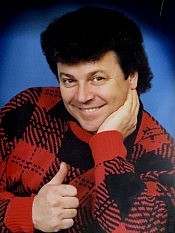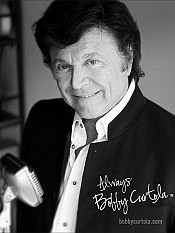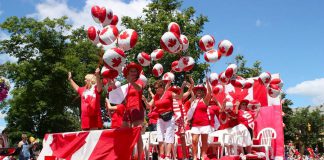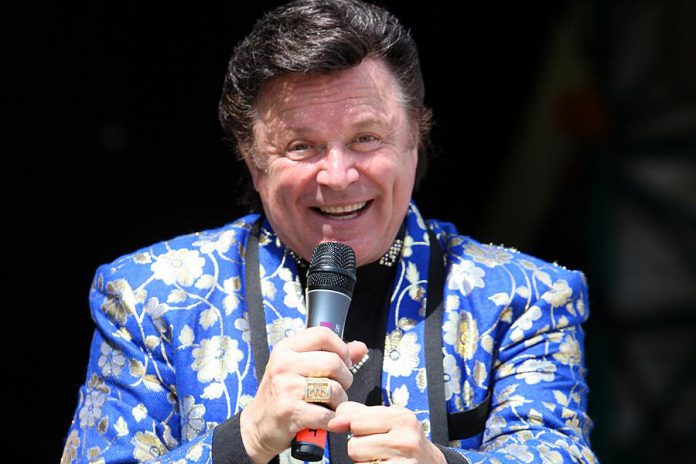
On Saturday, December 19th, Canadian rock ‘n’ roll trailblazer Bobby Curtola is coming to Showplace Performance Centre. One of Canada’s early pop music success stories, Bobby is doing a one-date only afternoon concert showcasing his greatest hits, as well as holiday favorites from his recently released holiday album.
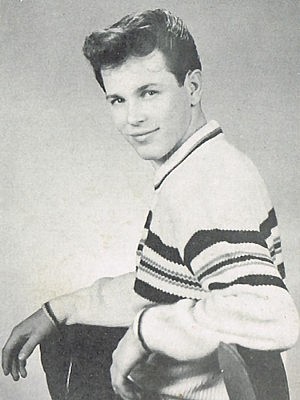
“I never expected to be singing this long,” Bobby confesses. “I’ve been touring since 1960. I never went away.”
When Bobby Curtola recorded his first single in 1959, rock n’ roll was still in its infancy. Elvis Presley had only been a phenomenon for four years, and The Beatles wouldn’t find chart success for another three.
In Canada, The Crew Cuts had opened the door to the Great White North with their 1954 international hit “Sh-Boom (Life Could Be a Dream)”, Paul Anka had become a pop sensation south of the border with “Diana” in 1957, and Little Caesar and the Consuls had brought doo-wop to Toronto but had yet to find radio success.
Bobby was a 16-year-old kid from Thunder Bay, pumping gas at his father’s service station when he went into the studio to cut his first single “Hand in Hand With You” in the fall of 1959. Within months, Bobby was one of the biggest teen idols in all of Canada.
“I was Justin Bieber before Justin Bieber,” Bobby laughs. “It was wonderful because the girls just wanted to get close to you. The back of the line wanted to be the front of the line. For a young guy like me, that was like a dream come true. But sometimes it gets pretty scary when it starts to happen and you don’t know what to do.”
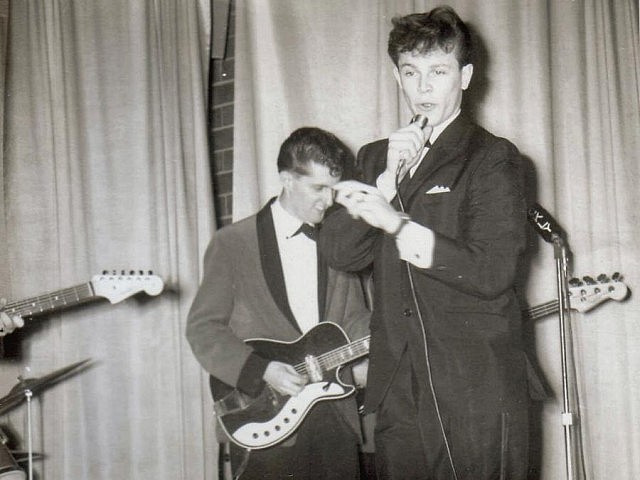
“Out of nowhere, all these fans showed up and they were all over us, trying to tear piece of our suits off,” Bobby recalls. “The security guards were going crazy and they dragged me backwards into the awaiting limo, but the girls were already in the car. It was like in a movie. It was unbelievable. As you can imagine, that was a highlight of my career.”
Unlike today, where music is more accessible than ever before, much of Bobby’s success was at the hands of the different disc jockeys across Canada. But with his brand of good time pop music and his favorable personality, he quickly became a popular music fans coast to coast.
“The untold story of those early years in Canada is that we had our own Dick Clark counterpart in every major centre in Canada,” Bobby explains. “In those days, there were no network radio stations. There were only regional radio stations. The only thing that was network was CBC and the news.”
“There was Frank Cameron in Nova Scotia, all the CHUM guys, and all the guys in the west, and the one and only Red Robinson in Vancouver,” he continues. “All of these guys introduced me to their listeners. They made big stars out of all of us recording artists. And after our second or third album, people would remember our names. Long before there were computers, these guys were interactive. They were talking to the kids on the radio. They were incredible.”
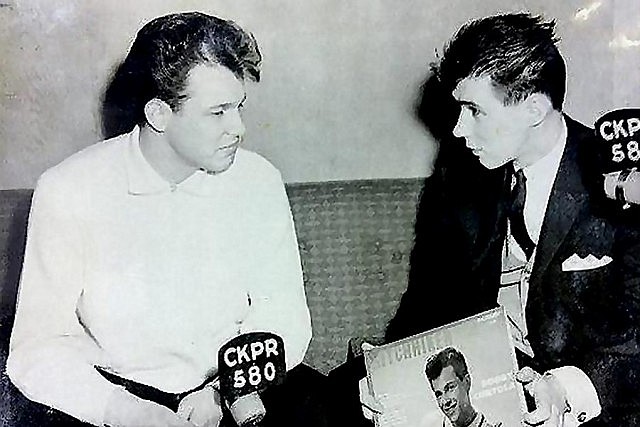
“My father said to me ‘Remember, Bobby, don’t you ever embarrass your family,” he says. “That stuck with me. I was more afraid of my father than the police. I still had fun, but I never really got crazy.”
“You’ve got to respect everybody,” Bobby adds. “The guy who works for the city and the guy who drives the garbage truck. Because everybody is trying to find their way. If you respect everybody, you’ll be respected too — because you’re going to meet all those people on the way down, and they’re going to measure if you were a good person or not.”
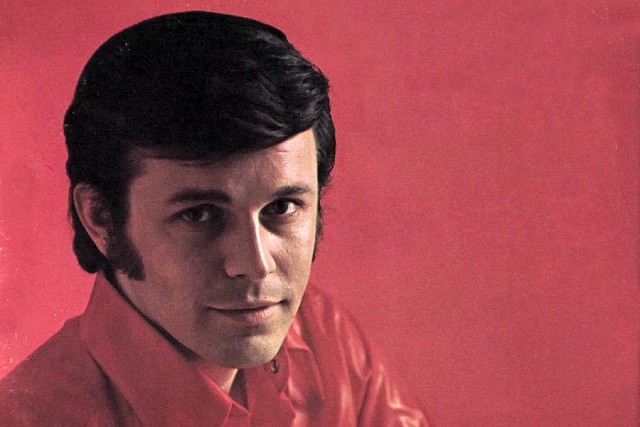
“When you end up with more than you know you deserve, you can always find a way to give it back,” Bobby says. “When there are situations that you are called to do things, you know in your heart what it is. When you give, that energy in your heart keeps going like dominoes and someway else it will come back to you.”
As the sixties came to a close, Bobby made the successful move from Canadian pop act to Las Vegas entertainer, where he based much of his career from the ’70s into the ’90s. One of his earliest gigs during this transition was opening for jazz legend Louie Armstrong.
“I went back stage and Louie was already there,” Bobby recalls. “He knew I was nervous because I was used to being in the arenas with all the kids in front of me, but now they were in these beautiful theatres with their parents. I didn’t know if they’d like me. There were no guarantees. But Louie slapped me on the butt and said ‘Go out there kid and just be yourself.'”
Despite success in Las Vegas, Bobby has always found his core fan base in the North and has stayed dedicated to his Canadian roots.
“I’m proud to be Canadian,” he says. “You look over your shoulder and you see all the tremendous musical acts that are number one all over the world. They’re just great. It makes everybody proud.”
Throughout the years, Bobby has had success after success. From being the first Canadian performer to do a coast-to-coast tour, to hosting two different TV variety shows, to penning the Coca-Cola jingle that first deemed Coke as “The Real Thing”, Bobby has managed to stay relevant in the entertainment industry despite tremendous changes in style and technology. Part of Bobby’s success can easily be attributed to the quality of the music.
“I remember talking with Roy Orbison once and he said that the only difference about guys like us is that we had the hit records,” Bobby recalls. “There are a lot of really great singers, but finding the magic of the music and finding those hits was always what it was about. It was always about great songs.”
However, Bobby also believes that perhaps there is something deeper at play in his success.
“I believe that dreams come true,” he says. “When anybody says that dreams don’t come true, Bobby Curtola is living proof that impossible things can happen. You know in your bones who you are and what you want to be and those things are real. Follow your dreams and reach for the stars, because it will always bring you closer to where you belong.”
“Don’t give up, because that is your destiny,” Bobby continues. “Sometimes we get on the wrong path and we figure that it’s not going to happen. But one day we’ll see a news clip or a show or an opportunity and it’s like the door opens. We might think we are too far for it to happen, but nobody sees it open but you — because it is for you. When the door opens, run for it.”
A great guy with a positive outlook, Bobby Curtola is not only a Canadian music legend, but a true class act. Join Bobby at Showplace on December 19th at 2 p.m. for an afternoon of great rock n’ roll classics and good times.
“It’s going to be a party,” Bobby promises. “Because whenever anyone goes to a ’60s music concert, it’s going to be fun.”


